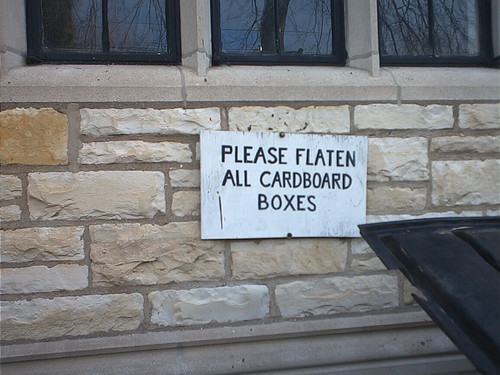This morning, I sent the deans of Seabury my resignation from the faculty.
I will miss a lot about Seabury: the labyrinthine navigation, the smell of a freshly-waxed chapel on the first day of classes, your choice of garths, the “Flaten All Boxes” sign. Please, someone, take a picture of the “Recreption Area” plaque. And especially the wonderful students who devoted so much time and effort and patience to the courses I led.

Margaret will make a trip to Evanston in a few weeks, to do the first push of boxing-up; Pippa and I will go back with her in June, after a memorial event for my father, to finish up the house and work on my office. At this point, we have a strong idea of where we’ll be, but until we get papers signed I’d rather not make any public statements. At this point, Plan A is kaput, Plan B is looking highly improbable, Plan C is presumably all set for Margaret, Plan D what we’re expecting for me, Plan E and I have agreed to continue our promising conversations for another year with no commitments either way, Plan F is probably out of the question, and Plan G wasn’t much of a chance in the first place. If all proceeds as expected, Margaret and I’ll be able to affirm our respective Plans very soon.
We’ve taken Step One, though.

